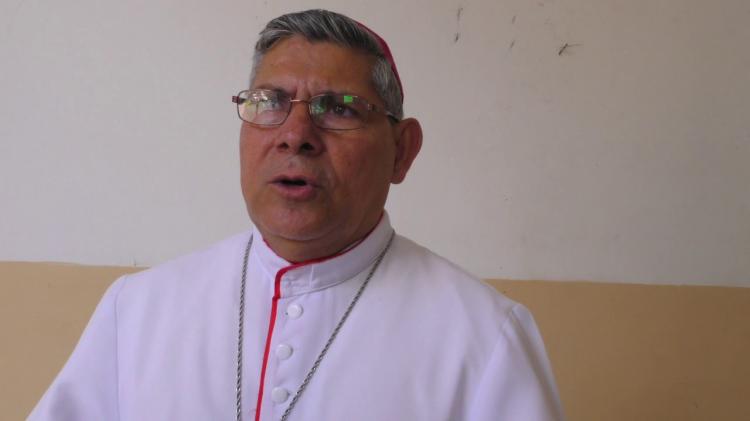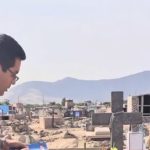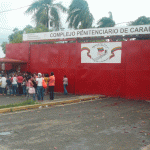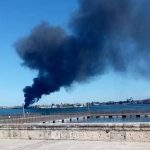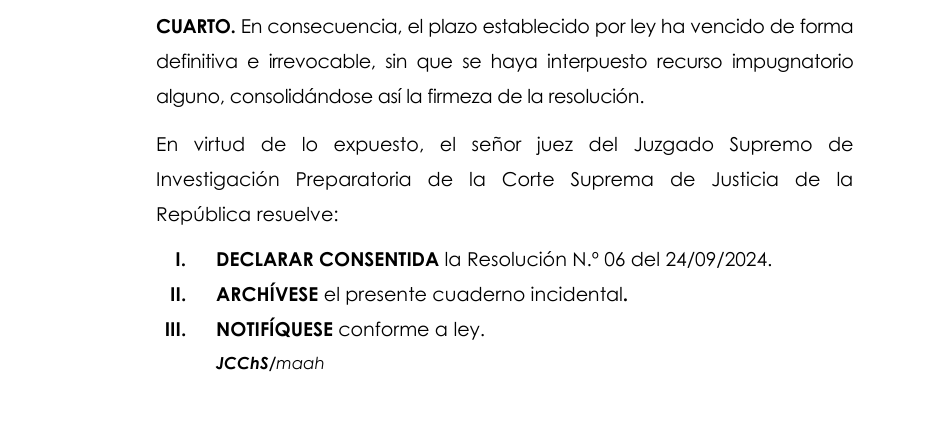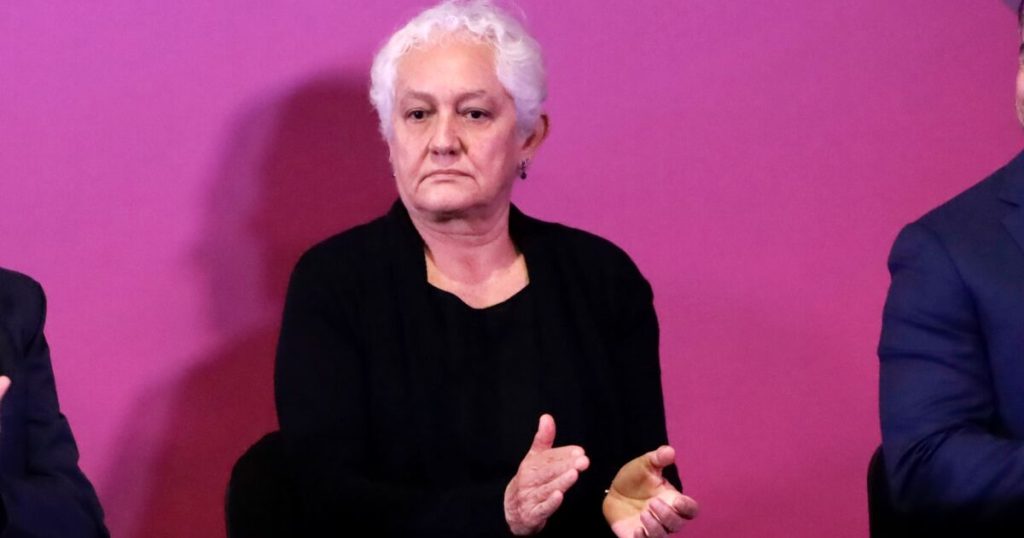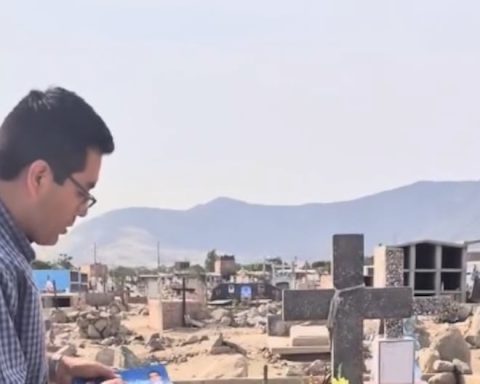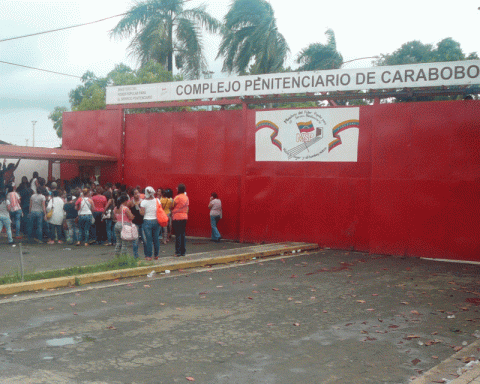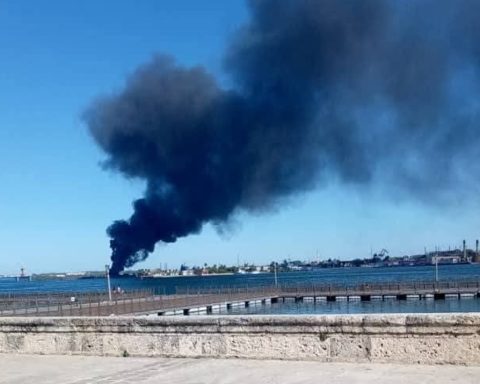The kidnapping and immediate banishment to Guatemala of the bishop of Jinotega and president of the Episcopal Conference of Nicaragua (CEN), Monsignor Carlos Herrera, has generated repudiation and condemnation from organizations defending Human Rights, Catholic activists and opposition groups that have cataloged the repressive escalation of the dictatorship against the Catholic Church as “ruthless and anti-Christian.”
The communicator, specialized in religious issues, Israel González, consulted by Article 66, He believed that the repression against the faith, ordered by the dictators Ortega and Murillo, is so extreme and at levels never seen before, to the point that they are forcing the Catholic institution to return to “catacomb Christianity”, like the first Christians in the era of the Roman empire.
The Jinotegan bishop and president of the CEN, became the fourth bishop to be banished from the country for raising his voice in defense of the faith of the people of Nicaragua. According to information disclosed through social networks and later confirmed by people linked to the Church, Bishop Herrera was arrested by members of the Ortega Police after returning from a trip to the Capital and hours later he was exiled to Guatemala.
Monsignor Carlos Enrique Herrera is 75 years old, he belongs to the Order of Friars Minor (Franciscans). He has been bishop of Jinotega since 2005.
Related news: Hell in Nicaragua: panorama of a country plagued by a two-headed regime
Although the regime has not made any accusations against the religious nor has it referred to his exile, it is known that last Sunday, from the pulpit, the bishop criticized the disrespectful interruptions to the celebration by Sandinista fanatics led by the mayor of Jinotega , Leónidas Centeno, whom the priest described as “sacrilegious.” This would have provoked the fury of the dictators who ordered his exile.
Catacomb Christianity
The expert on religious issues considers that Nicaragua is reaching “truly alarming” levels of religious persecution, as demonstrated by the exile of Monsignor Herrera. “This confirms that in Nicaragua no one, absolutely no one, not even the religious leaders, the Catholic hierarchy, is safe from repression for expressing a comment in a Eucharist,” says González.
“It is no longer even to express oneself about the socio-political situation of the country, which is also alarming, but to express disagreement and demand respect for the Eucharistic celebrations,” the journalist stressed.
He also criticized that the dictators Ortega and Murillo, in their desire for absolute control and in the midst of the war against religion, have established themselves as “absolute owners of the country who do whatever they please and who, therefore, They decide who is Nicaraguan, who is not Nicaraguan, who can be in the country, who cannot be in the country, even now it seems or pretends in some way to tell Catholics, who can say something at mass and who cannot say something in mass, to me it seems really alarming, alarming because we are reaching levels of repression that neither the Latin American dictatorships of the 60s, 70s and 80s nor Fidel Castro in Cuba exercised.
He warned that the country is facing a new scenario that is opening up very difficult for Catholics, “a scenario of a faith in resistance, of a faith, like in the first Christian communities in the Roman Empire, a faith of catacombs, a faith in that it is going to have to be practiced in the small, intimate way, sometimes only with the family,” González warned.
Bishop Herrera currently holds the position of president of the Episcopal Conference in Nicaragua, the body that brings together all the bishops of the ecclesiastical province of Nicaragua, with an Archdiocese, which is Managua, but with other dioceses, among which is Jinotega.
Related news: Silence of Church leaders in the face of priests’ arrests is “pusillanimous” and “cowardly”
He had been under surveillance for a long time.
Lawyer Martha Patricia Molina has documented the attacks suffered by the Catholic Church in the last six years and is the author of the report Nicaragua: A persecuted church? Molina told this media outlet that the Jinotegan bishop had been harassed and monitored by the repressive forces of the dictatorship for several months.
For the researcher, “the exile of the bishop of Jinotega only reveals the atrocious and indiscriminate persecution suffered by the Nicaraguan Catholic Church at the hands of the Sandinista dictatorship.”
Molina pointed out that the exile of the Jinotegan bishop is a retaliation by the dictatorship because “they could not silence him or make him an accomplice” of the tyrants Ortega and Murillo.
For its part, Yader Valdivia, from the Nicaragua Never Again Human Rights Collective, explained that the arbitrary expulsion of Monsignor Herrera “symbolizes the persecution that the Catholic Church has been suffering since 2018, where its leadership has mainly been attacked.”
The human rights activist explained that it is a “violation of freedom of worship”, and furthermore, a violation of the individual rights of the religious, because by banishing him, the dictatorship leaves him in a situation of statelessness in Guatemala “because he no longer “he can return (to Nicaragua) and therefore does not have the support or protection that states give to their citizens.”
Related news: UN calls for an end to hate speech and respect for religious freedom
“We are talking about the president of the Episcopal Conference being exiled for having said that it was a sacrilege not to be allowed to offer Mass with complete freedom, that is, that any person from the Episcopal Conference who could issue any criteria, both with the exile of the bishop Herrera like the other priests who have been sent to Rome or the United States, or any complaint that can be made of violations of freedom of religion in Nicaragua can be banished,” lamented the defender.
In that sense, he called on international organizations defending human rights to do something for Nicaragua and for Nicaraguans who are outside the country to raise their voices for their Nicaraguan brothers.
Lawyer Molina, in her update on religious persecution data, indicates that, from 2018 to date, a total of 261 Catholic religious have been expelled, banished or prevented from returning to the country, of which one was the apostolic nuncio, 4 bishops, 141 priests, 99 nuns, 13 seminarians and three deacons.
